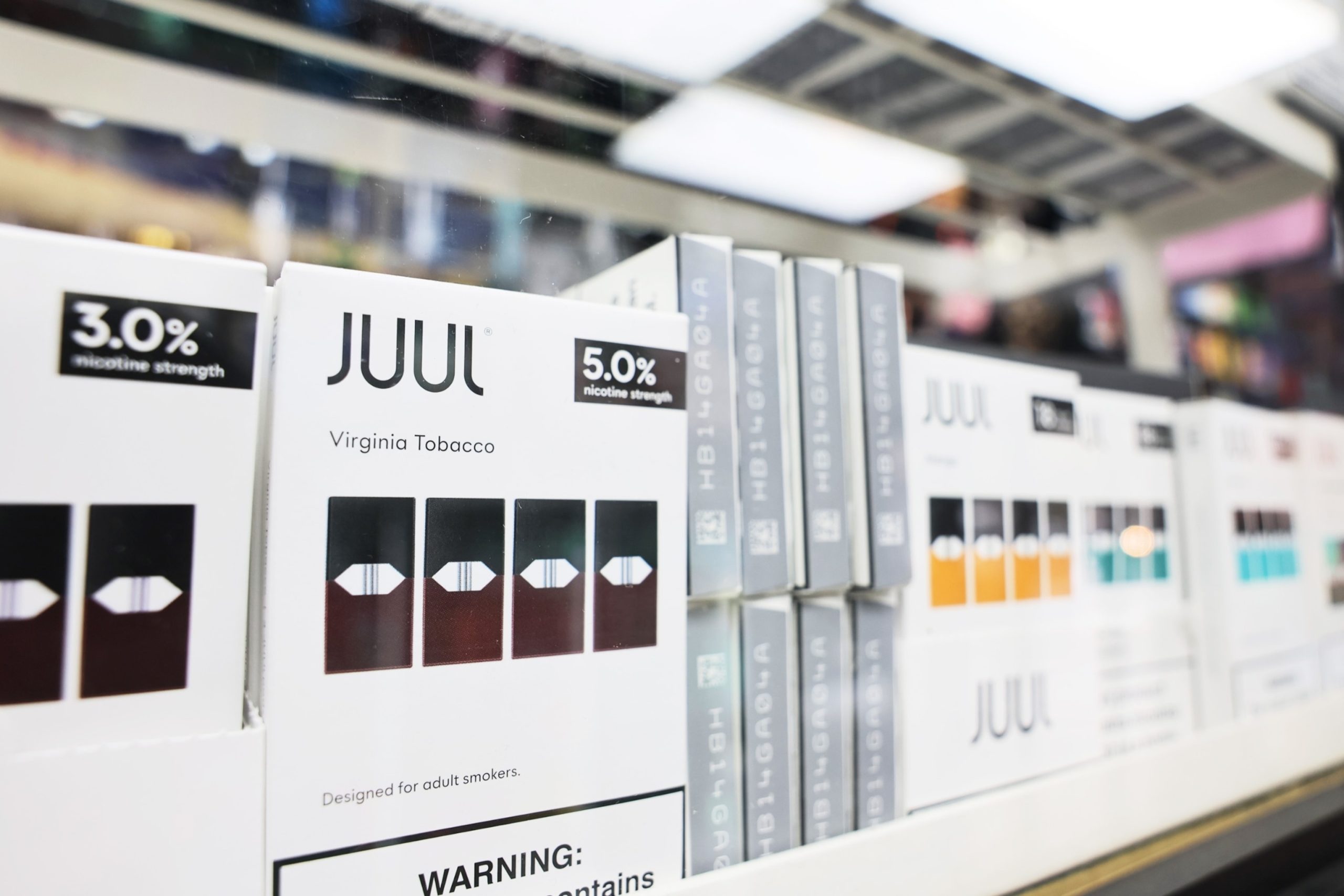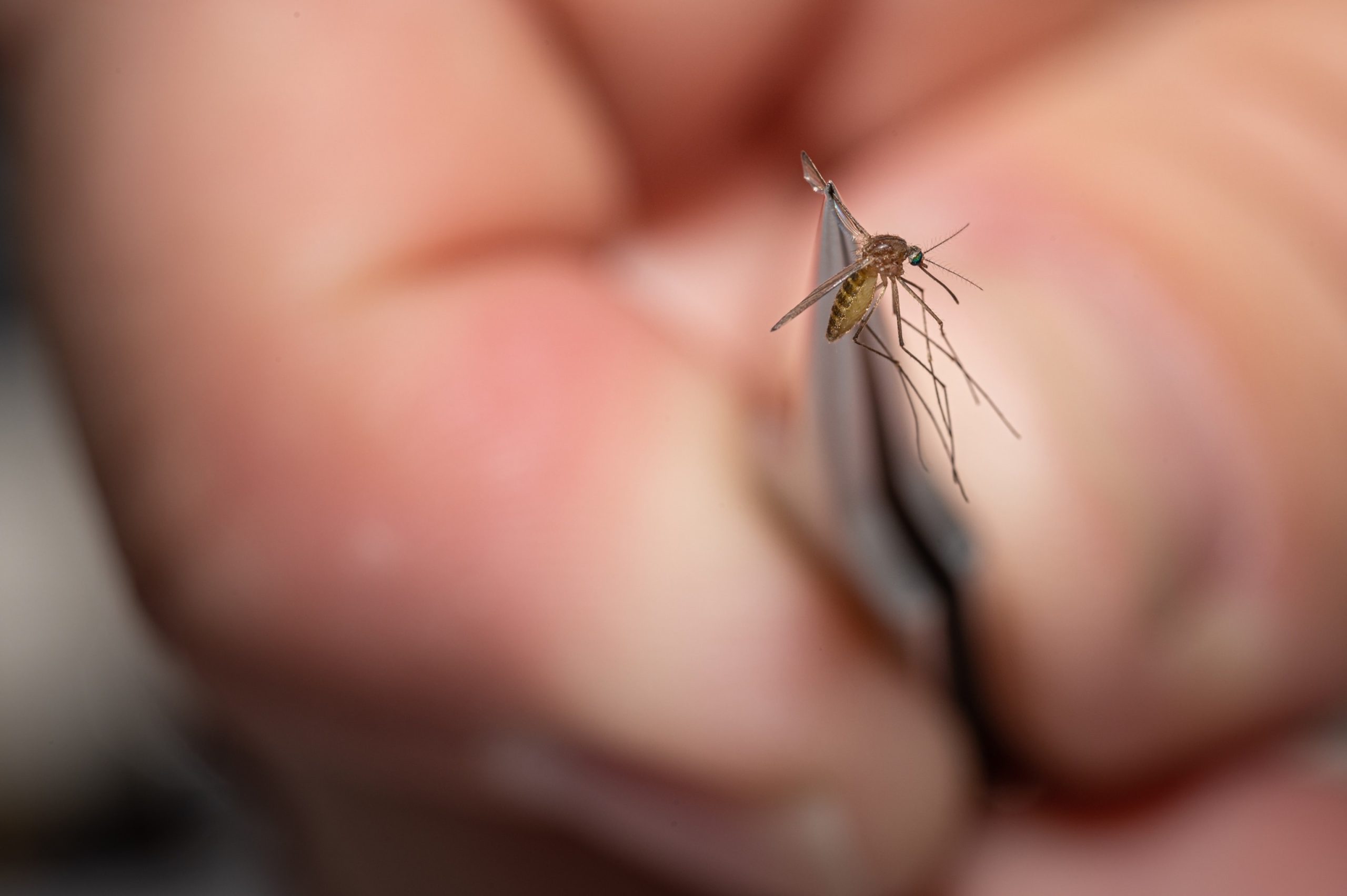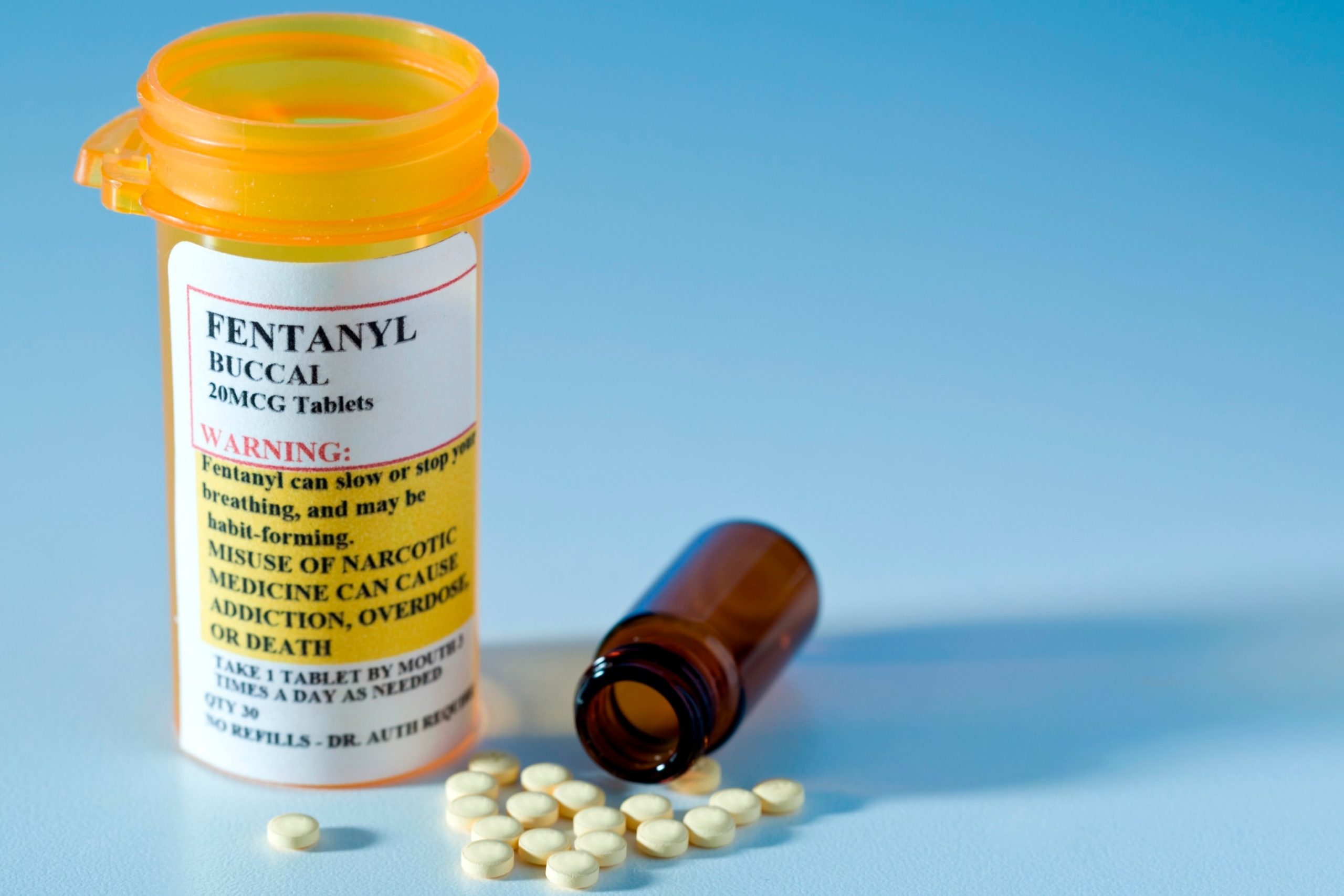The U.S. Food and Drug Administration rescinded its marketing ban on Juul Labs on Thursday, opening the door to possible authorization of its products.
The reversal comes nearly two years after the federal health agency ordered the company’s e-cigarettes and vaping products be taken off the market.
The FDA had initially blocked Juul’s application to sell its vaping device and tobacco- and menthol-flavored pods in June 2022, after completing a nearly two-year review of the manufacturer’s application, finding that the applications “lacked sufficient evidence regarding the toxicological profile of the products to demonstrate that the marketing of the products met the public health standard required by law.”
The company has long claimed its product can be used as a tool to stop smoking cigarettes.
The FDA subsequently paused the block just weeks later in July 2022 to conduct additional scientific review.
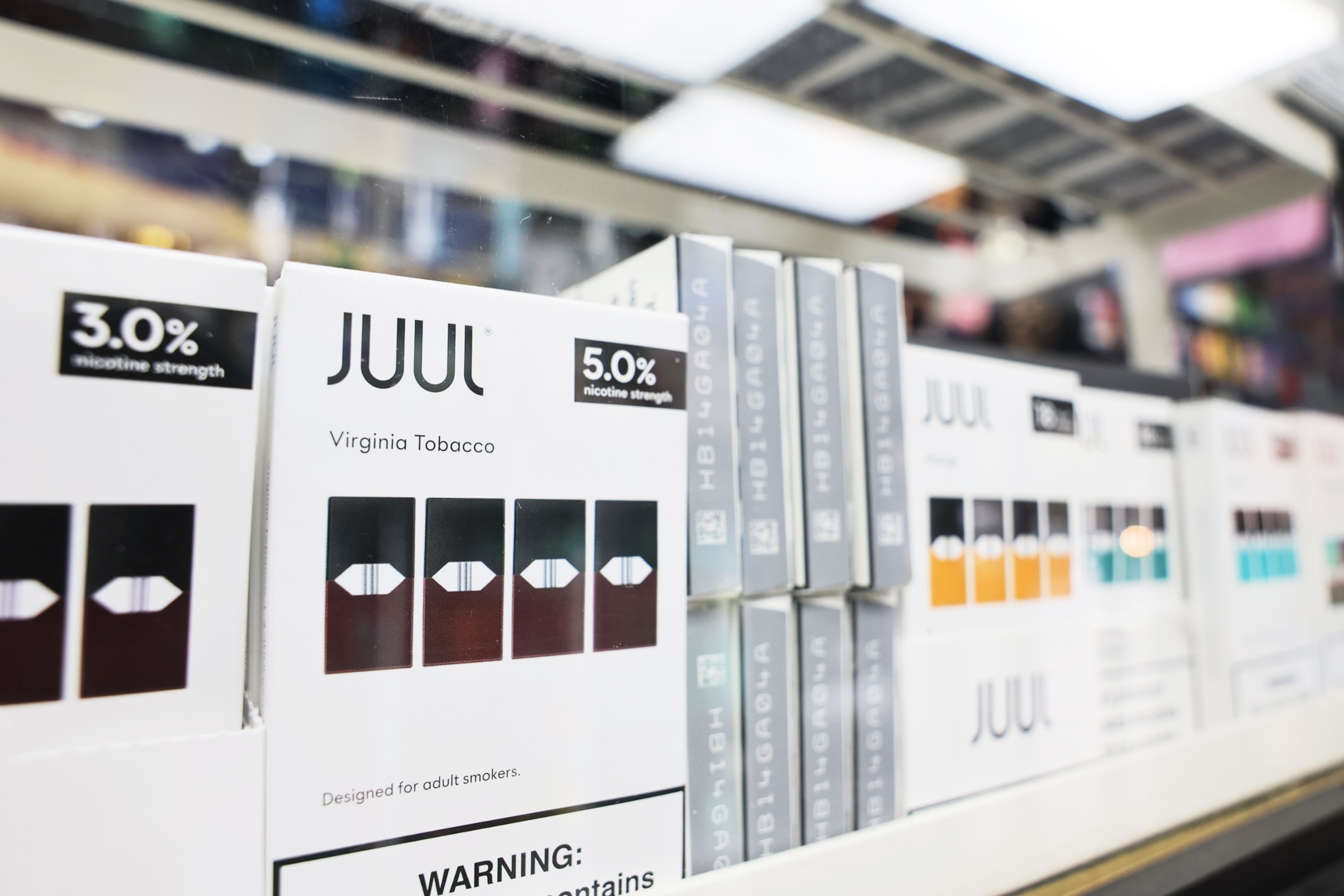
Juul packages are seen on a shelf at Empire Smoke Shop on Dec. 07, 2022 in the Flatbush neighborhood of Brooklyn borough in New York City.
Michael M. Santiago/Getty Images, FILE
Since then, the FDA said Thursday it has “conducted additional substantive review of the applications in a number of disciplines, including toxicology, engineering, social science, and clinical pharmacology.”
The reversal is based on a “review of information provided by the applicant” as well as new case law stemming from court decisions involving marketing denial orders, or MDOs, for e-cigarette products, the FDA said.
“Rescission of the MDOs is not an authorization or a denial and does not indicate whether the applications are likely to be authorized or denied,” the FDA said in a statement. “Rescission of the MDOs returns the applications to pending status, under substantive review by the FDA.”
Juul Labs said in a statement Thursday that they “appreciate the FDA’s decision and now look forward to re-engaging with the agency on a science- and evidence-based process to pursue a marketing authorization for JUUL products.”
“We remain confident in the quality and substance of our applications and believe that a full review of the science and evidence will demonstrate that our products meet the statutory standard of being appropriate for the protection of public health,” the statement continued.
In 2009, Congress gave the FDA authority to regulate the manufacturing, distribution and marketing of tobacco products.
Similar Stories
E-cigarette manufacturers, including Juul, were required to submit their products to the FDA to review by September 2020 but were able to sell products while the FDA review was underway.
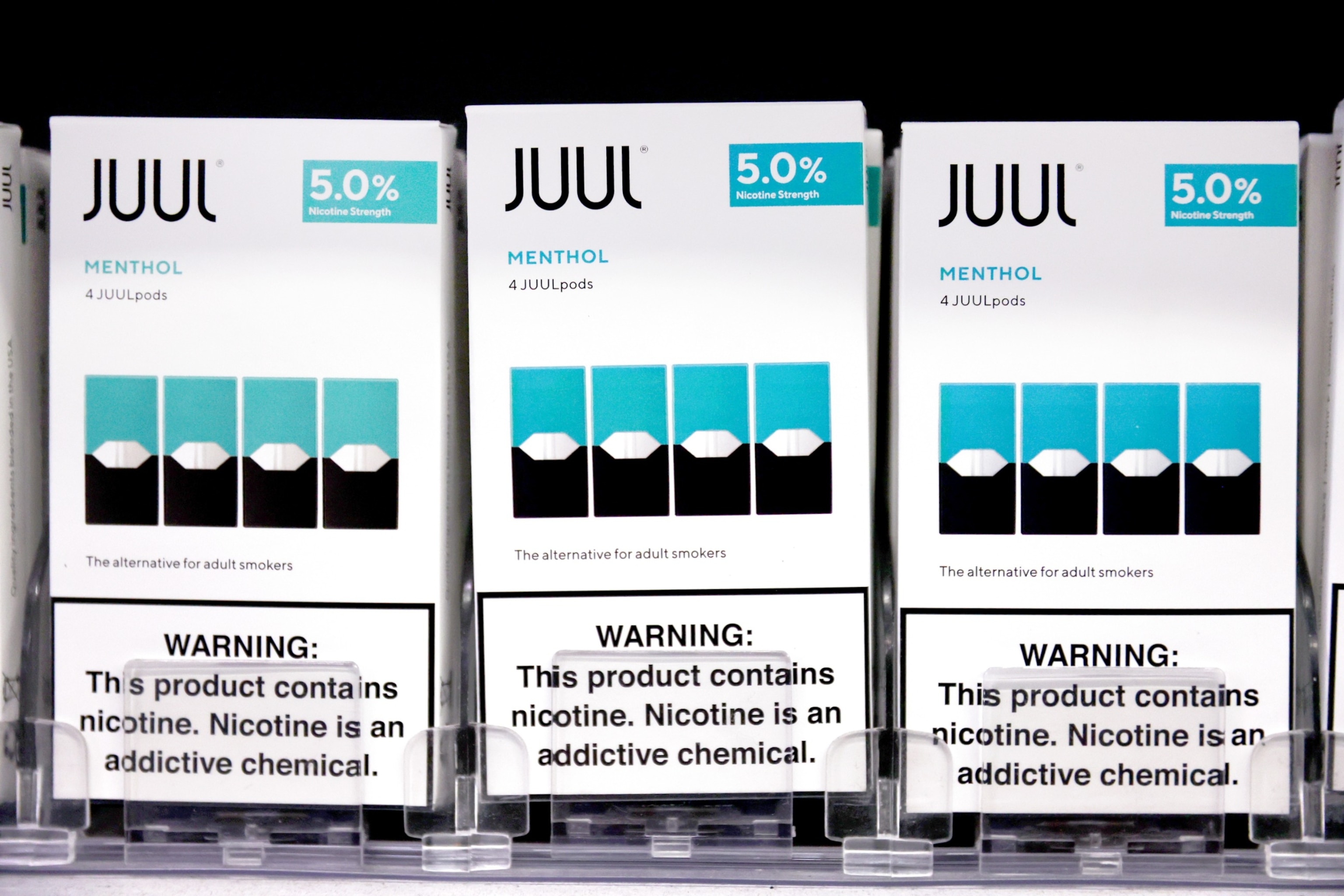
Packages of Juul e-cigarettes are displayed for sale in the Brazil Outlet shop on June 22, 2022 in Los Angeles.
Mario Tama/Getty Images, FILE
Juul pods contain nicotine strengths of 5% or 3%, according to the company.
The American Lung Association said Thursday it was “deeply troubled” by the FDA’s announcement and urged the agency to deny all Juul products, citing its role in the “youth e-cigarette epidemic from 2017-2019.”
“These products and its manufacturer clearly do not meet the standard for protecting the public health,” Erika Sward, the association’s assistant vice president of nationwide advocacy, in a statement.
After hitting the market in the mid-2010s, Juul became one of the most popular brands of e-cigarettes available, in large part due to its wide variety of flavors. Politicians and anti-tobacco advocates have accused the company of using these flavors — along with a sleek design resembling a USB flash drive — to market vaping to U.S. children and teenagers.
More than 2 million American middle and high school students used e-cigarettes in 2023 — with nearly 9 in 10 students saying they use flavored e-cigarettes, according to the U.S. Centers for Disease Control and Prevention. Use of e-cigarettes among high school students declined from 14.1% to 10.% from 2022 to 2023, though they remained the most commonly used tobacco product among youths, according to the CDC.
The 2023 National Youth Tobacco Survey found Juul was the fourth-most popular e-cigarette brand used by adolescents — down from the most popular in the 2020 survey.
Juul says its products are designed for adult smokers, ages 21 and up. In response to the 2023 National Youth Tobacco Survey, the company said it was “pleased to see continued declines in underage use of all vapor products and JUUL products in particular.”
“These data demonstrate that appropriate restrictions to access and marketing of vapor products work and can lead to meaningful reductions in underage use in a regulated marketplace,” the company said. “The data further show the need to escalate enforcement against the illicit disposable products that now dominate youth use. That enforcement effort, if coupled with market authorizations for products that meet the statutory standard with science and evidence, can unlock the historic opportunity to reduce the deadly harm of combustible cigarettes while continuing to drive down underage use.”
The Food and Drug Administration (FDA) has recently made a surprising decision regarding Juul vaping products, reversing their previous stance on the popular e-cigarette brand. This decision opens up the possibility for Juul to receive authorization for sale in the United States, a move that has sparked both excitement and controversy within the vaping community.
Juul has been at the center of a heated debate over the past few years, with critics arguing that the company’s marketing tactics have targeted young people and led to a surge in teen vaping. In response to these concerns, the FDA had previously taken a hardline stance against Juul, requiring the company to submit a premarket tobacco product application (PMTA) in order to continue selling their products in the US.
However, in a surprising turn of events, the FDA has now announced that they will be reconsidering their decision on Juul’s PMTA application. This means that Juul may potentially receive authorization to continue selling their products in the US, much to the relief of many adult vapers who rely on Juul for their nicotine fix.
The FDA’s decision has been met with mixed reactions from various stakeholders. Supporters of Juul argue that the company’s products have helped millions of adult smokers quit traditional cigarettes and that restricting access to Juul could have unintended consequences, such as driving former smokers back to combustible tobacco products.
On the other hand, critics of Juul remain concerned about the potential impact of the company’s products on youth vaping rates. They argue that Juul’s sleek design and appealing flavors have made them particularly attractive to young people, leading to a new generation of nicotine addiction.
It is important to note that the FDA’s decision does not guarantee that Juul will receive authorization for sale in the US. The agency will still need to review Juul’s PMTA application and determine whether the company’s products meet the necessary safety and efficacy standards.
In the meantime, Juul users and advocates are eagerly awaiting further updates from the FDA. The outcome of this decision could have far-reaching implications for the vaping industry as a whole, shaping the future of e-cigarette regulation in the US.
Overall, the FDA’s reversal on Juul vaping products has sparked a renewed debate over the role of e-cigarettes in public health. As we await further developments, it is crucial for all stakeholders to carefully consider the potential benefits and risks of allowing Juul to continue selling their products in the US.
